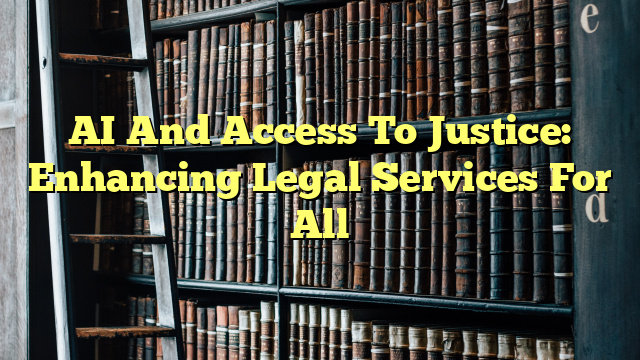- Introduction
- The Use of AI in the Legal Profession
- Types of AI Providing Legal Advice
- Are Lawyers Going to Be Replaced by AI?
- Why Can’t AI Replace Lawyers?
- Conclusion
Introduction
The legal profession is evolving rapidly, in part due to the increasing adoption of Artificial Intelligence (AI) as a tool for legal practitioners. AI is used to automate repetitive or manual processes, cut costs, increase efficiency, and provide access to legal advice and services to those who would otherwise not have access. In this article, we will discuss the use of AI in the legal profession, types of AI providing legal advice, and why AI cannot replace lawyers.
The Use of AI in the Legal Profession
AI has become an increasingly popular and powerful tool for lawyers, allowing them to automate tedious manual tasks such as document review. AI is used to identify relevant documents in a case, saving lawyers significant amounts of time. AI is also used to identify and analyze patterns in cases, which can be used to improve legal strategy and provide more accurate legal advice.
AI is also used to provide access to legal services for those who would otherwise not have access. For example, AI-powered chatbots can provide legal advice and information to those who are unable to access a lawyer due to cost or location. AI can also be used to provide legal advice to those who are not comfortable speaking to a lawyer in person.
Types of AI Providing Legal Advice
There are various types of AI that can provide legal advice. The most common type of AI used in the legal profession is natural language processing (NLP). NLP is used to understand and interpret language, allowing it to answer questions about the law and provide legal advice. For example, NLP can be used to analyze legal documents and provide advice or identify relevant documents.
Other types of AI used in the legal profession include machine learning and deep learning. Machine learning is used to analyze large amounts of data, identify patterns, and make predictions about future legal cases. Deep learning is a type of AI that is used to understand complex concepts, such as analyzing case law and legal documents.
Are Lawyers Going to Be Replaced by AI?
In short, no. While AI can provide legal advice and automate manual tasks, it cannot replace lawyers completely. AI is simply a tool that can be used to improve the efficiency and accuracy of legal work. AI cannot replicate the human factors involved in legal work, such as empathy and understanding the nuances of a particular case. AI also cannot provide the same level of personalized advice as a lawyer.
Why Can’t AI Replace Lawyers?
AI cannot replace lawyers because it cannot provide the same level of personalized advice as a lawyer. AI is limited by its algorithms and cannot replicate the human factors involved in legal work, such as empathy and understanding the nuances of a particular case. AI also cannot make decisions based on ethical considerations, which is a key component of legal work.
AI can, however, be used to augment the work of lawyers. For example, AI can be used to automate tedious manual tasks such as document review, freeing up lawyers to focus on more complex and important tasks. AI can also be used to provide access to legal services to those who would otherwise not have access, allowing lawyers to serve a larger client base.
Conclusion
AI is an increasingly popular and powerful tool for lawyers, allowing them to automate tedious manual tasks, cut costs, increase efficiency, and provide access to legal services to those who would otherwise not have access. AI can also be used to improve the accuracy and efficiency of legal work. While AI cannot replace lawyers completely, it can be used to augment their work and provide access to legal services to those who would otherwise not have access.


AI is drastically revolutionizing access to justice for all, providing unprecedented legal services!
AI can provide greater access to legal services, ensuring justice is accessible for all.